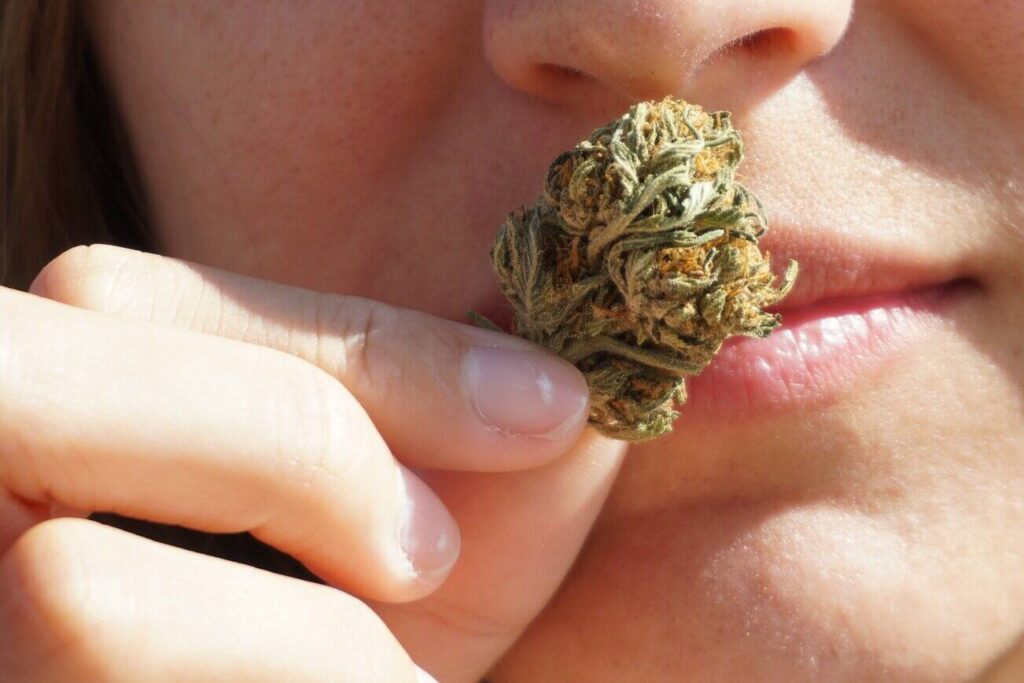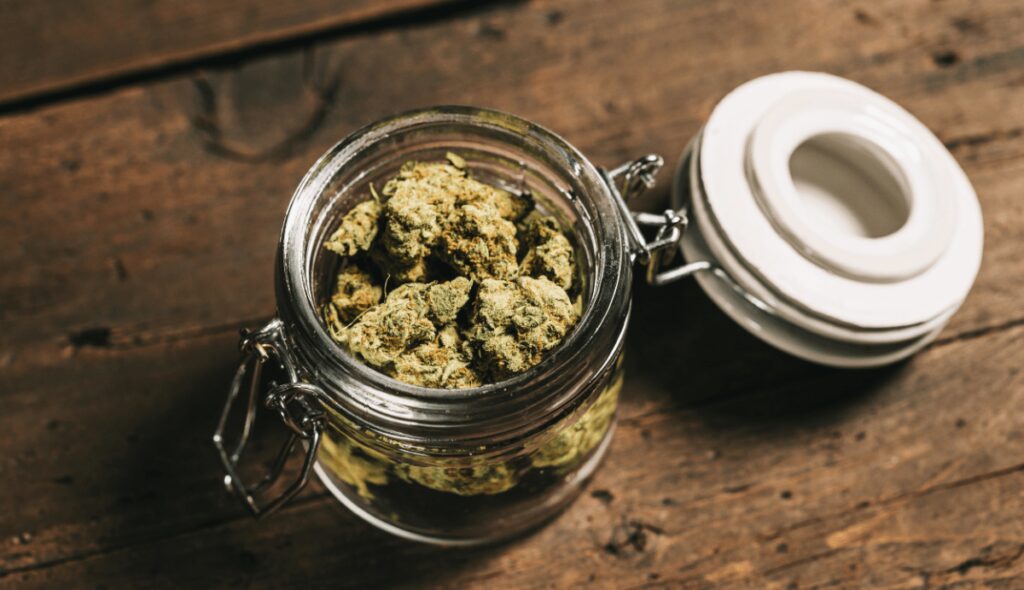What Are The Effects of Delta-8 THC Flower?
The cannabis plant and its compounds continue to impress consumers around the world with its versatility and real-world therapeutic potential. As the global mainstream becomes increasingly well-acquainted with the non-psychoactive cannabinoid known as cannabidiol (CBD), there’s already an intriguing new cannabinoid taking the legal cannabis industry by storm; namely, delta-8 tetrahydrocannabinol (THC).
What is Delta-8 THC?

Delta-8 THC is a psychoactive cannabinoid that has been shown to provide therapeutic benefits. It is similar to THC, but is less psychoactive and may be more effective in treating certain conditions. For example, delta-8 THC has been shown to reduce inflammation and pain, making it a potential treatment for chronic pain. Additionally, delta-8 THC may help improve appetite and weight gain in people with cancer or AIDS. More research is needed to determine the full potential of delta-8 THC, but early findings suggest that it could be a promising treatment for a variety of conditions.
It’s worth noting that delta-8 THC has been around for a while, and is not exactly a recent discovery. In fact Raphael Mechoulam, Israeli organic chemist and so-called “Godfather of Cannabis,” achieved the first total synthesis of the cannabis compound in 1965 after American organic chemist Roger Adams discovered it in 1941 while working at the University of Illinois. Adams and his team then went on to research the psychoactivity of delta-8 and delta-9 THC respectively.
Because delta-8 THC has only recently captured the attention of cannabis consumers, many weed greenhorns and connoisseurs alike lack the full picture on this particular cannabinoid; from how it’s made to how it’s different from delta-9 THC. In this post, we go over all of the above and more, with particular emphasis on the effects of delta-8 THC.
Do Delta-8 Flowers Grow Naturally?
In a word, no. Delta-8 THC is an extract, so the only way to produce delta-8 flowers is through an infusion process using quality hemp flowers as a base. They can be coated or dusted with delta-8 THC, typically using premium infused kief and distillate oil. The final product is a delta-8 THC hemp flower with a heavy frosted look that can be legally smoked, vaped or otherwise consumed with the benefits of both CBD and delta-8 THC.
As of this writing, reputable cannabis industry retailers like Crescent Canna have delta-8 THC bud for sale, but some concerns over the delta-8 production process casts some doubt on its continued legality across all 50 states.
How is Delta-8 THC Produced?

Delta-8 THC is made through a process of extraction and refinement. The starting material is usually cannabis flowers or resin that has been extracted from the plant using a solvent. The extract is then refined using an acid added into the mixture, before an intense heating process over hours that essentially converts CBD into pure delta-8 THC.
Once the process is completed, the final solution is separated and the acids and chemicals are neutralized. The final delta-8 THC product can be in the form of a thick oil, a solid wax, or a powder. It is often smoked, but can also be vaporized or otherwise ingested.
Distinguishing Delta-8 THC from Delta-9 THC
Delta-8 THC and delta-9 THC are both cannabinoids, but they have different effects on the body. Delta-8 THC produces considerably less psychoactivity than delta-9 THC, but has stronger therapeutic potential. For this reason, delta-8 is much less likely to cause anxiety and paranoia than delta-9 THC.
Delta-8 is a slightly different molecule than delta-9 THC, having an additional two hydrogen atoms. Although their molecular structures are similar, delta-8 and delta-9 THC have distinct effects on the body. Delta-9 is more psychologically active than delta-8 THC, meaning it can induce a “high” more easily. It also has more niche therapeutic effects, such as greatly increasing appetite, functioning as a muscle relaxant and acting as a moderate sedative in combination with certain terpenes.
Interestingly, delta-8 THC is a metabolite of delta-9 THC, meaning that it’s a by product created as the body processes delta-9 THC. Put simply, delta-8 THC forms inside the body throughout the process of metabolizing delta-9 THC, albeit in no real appreciable amount.
Effects of Delta-8 THC

Because it is considerably less psychoactive than most other forms of THC, delta-8 THC appeals to those who value the medicinal benefits of the marijuana plant over its potential to produce a high. Delta-8 is viewed as a source of THC with significantly less implications on mental function, which may be preferable for people who have certain medical conditions or wish to remain clear-headed rather than intoxicated.
- Helps to reduce acute and/or chronic pain and inflammatory disorders One study found that delta-8 THC had similar effects on mice as another cannabinoid called CBD, which is believed to have strong anti-inflammatory effects. This suggests that delta 8 THC may have important health benefits for people who suffer from chronic inflammatory conditions, or who are recovering after injury or surgery.
- Can improve sleep quality Delta 8 THC has been shown to help improve sleep quality, particularly in those who have difficulty sleeping. This is likely due to the cannabinoid’s ability to reduce anxiety and stress levels, which can interfere with sleep.
- Shows promising antitumoral activity In multiple laboratory tests, delta 8 THC was shown to be able to slow the proliferation of cancer cells. Further research is needed, but scientists suggest that this cannabinoid has potential as an add-on treatment for cancer patients.
- May help to reduce nausea and vomiting Early studies show that delta-8 THC may help to reduce nausea and vomiting. This is thought to be due to its ability to activate cannabinoid receptors in the brain (CB1 and CB2). Delta 8 THC may also help with loss of appetite, another common problem for people who are receiving chemotherapy or other cancer treatments.
While delta-8 THC’s most common production methods concern some scientists and legislators at present, research is ongoing as to the potential beneficial properties of the cannabinoid. Establishing a solid body of scientific literature around delta-8 THC — as well as safer production processes — may yet give this intriguing cannabis compound a place in the future of natural medicine.
